Meet our students
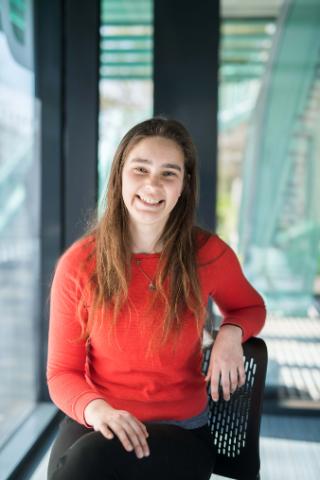
Project: Modelling the role of Biodiversity in Ecosystem Resilience to Climate Change: comparing tropical forests and coral reefs
Supervisory team: Professor Peter Cox (University of Exeter), Professor Peter Mumby (University of Queensland)
Why did you choose to take a PhD?
I decided to take a PhD because I really enjoyed research in my undergraduate degree and wanted to continue. I chose Exeter because it’s really good for environmental sciences – there are so many academics at the forefront of research and the Met Office is practically next-door. Exeter has the largest number of IPCC lead authors of any city in the world (see http://www.exeter.ac.uk/climate2014/programmeandspeakers/publiceventthefutureofclimatescience/ ). For me, it’s a really good place to be.
Can you tell us about your research project?
My project sits on the environmental sustainability theme and looks at climate impacts on ecosystems. We are trying to understand the underlying processes in ecosystems and how those ecosystems will be able to adapt in the face of climate change. I’m looking at short and long term responses (such as evolution and acclimation), then putting these responses into a model so we can make predictions into the future.
The great thing about Exeter is there’s so many academics doing so many different things which link back to climate science. I’ve been working with a group on the Penryn campus who are based in biosciences; they increase the temperature of cultures of microbes to measure how they evolve and react in different environments. I’m running mathematical modelling alongside this, which means we can make predictions about how the microbes will react. This input means I’ve made connections and collaborations across campuses and disciplines, whilst furthering my own research.
When I’m researching at Exeter the ecosystems I look at are quite general (e.g. microbes), whereas when I am based at UQ the research specifically focuses on coral reefs. Having the opportunity to research at a general and specific level at Exeter and Queensland respectively means that my research can develop, and be challenged, in very different ways. It’s quite a contrast working in this way, but the links between the research and Universities makes the process really interesting.
What is it like working with PhD supervisors?
Throughout my PhD, I’ve had a lot of independence and can really control the direction of my research. My supervisors give me a lot of freedom, and the confidence to take the lead on the project. I feel supported but in no way micromanaged!
Can you describe your research community?
In Exeter, I get to work in a research group who are really knowledgeable climate scientists addressing different areas within Mathematics and Physics. My office is really social, and everyone supports each other which is really nice. Then, when I go to Australia, I jump from a Maths/Physics/Climate science environment to a group made up of biologists and ecologists. At UQ I’m based in Biology and I’m completely ‘in there’; I get to be immersed in the biology environment and discuss my work with top researchers in the field, which gives me so much information and insight. Because my background is Mathematics, being in a new academic environment means I’m constantly learning while I’m out there. It’s also good for them because they like having a mathematician around!
What do you do outside your PhD?
I’ve been doing quite a bit of Mathematics teaching in Exeter. I particularly enjoyed teaching a Python course for first year students; the group went from never having coded before to giving in a piece of coursework at the end which I got to mark. They’d learnt so much from the course, which was really nice to see. I’ve found teaching alongside my research a really exciting challenge.
I’ve also been involved in several conferences and climate seminars, which means I get to learn how climate change is being understood at the most recent level, rather than waiting for the science to be published and filtered down. At these seminars the most recent breakthroughs are explained and I can ask questions straight away – which is a great opportunity. I’ve learnt so much so far; the first year of my PhD involved a lot of reading, testing and absorbing new information and now I feel ready to apply my findings. My first co-written paper has just been accepted and published, which is a huge step for me and my research.
Have you enjoyed your time at UQ so far?
Queensland is very similar to the UK in a lot of ways, in terms of the city and social life. The research culture at UQ is quite different to Exeter, mainly because researchers work with very different stakeholders. In the department I’m based in at UQ, they engage a lot of different organisations through the marine ecology lab. It’s really nice to be part of a different University and a different research group. Research into coral reef science is incredible in Australia.
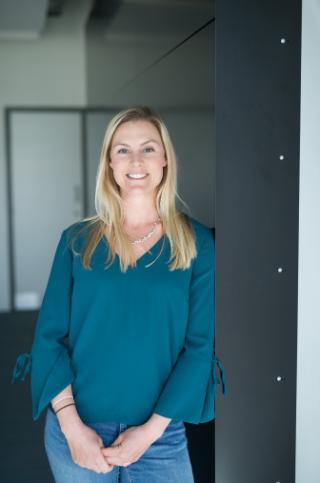
Project: Coral reef futures under climate change and ocean acidification
Supervisory team: Dr Paul Halloran, Professor Peter Cox (University of Exeter); Professor Peter Mumby (University of Queensland)
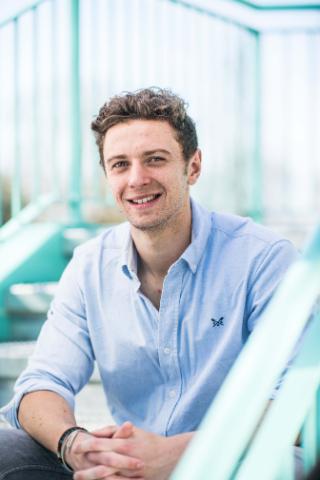
Project: The interaction between exercise diet and adiposity; how can we best promote cardiometabolic health in children and adolescents?
Supervisory team: Dr Bert Bond (Exeter), Dr Tom Bailey (UQ)
Why did you choose to do a PhD?
Throughout my undergraduate degree I was really interested in research; the dissertation was the part I enjoyed the most. My undergraduate featured a year-long placement scheme, which I spent in Exeter doing a research assistantship. When I look back, that was the best year of my undergraduate degree – so it definitely made sense to return to that environment. The reasons I chose this QUEX project stemmed from a desire to get back into the research environment in Exeter and explore an area I’m really interested in.
My PhD looks at how we can protect cardiovascular health in children in adolescence. When you get older and have a heart attack you get the fatty streaks on your arteries, a process we now know starts in childhood. We’re seeing fatty streaks in the arteries of like 8 year old children now, which is super scary. There’s two ways you can deal with it – treat it once a heart attack happens, or what we’re focussing on: how we can optimise health beforehand.
What is your supervisory team like?
I have a great supervisory team who are really involved in my research. It’s great having all four supervisors (two in Exeter, two in Queensland), as there’s so much information to feed off and means I can learn a lot more throughout my PhD. I feel so supported, even from those who are on the other side of the world. We ‘Zoom’ and share screens so I can get instant feedback from everyone about how my research is progressing.
Tell us about studying at Exeter
I’m based at St Lukes Campus, which is really nice – it feels peaceful, productive and has everything you need.
Within St Lukes, I’m based within the Children’s Health and Exercise Research Centre, which is part of the Sport and Health Sciences department. This centre includes a Professor, lecturer, 6 staff members and 12 PhD students. We sit apart from the rest of Sport and Health Sciences, with a specific focus on paediatric research. Because we always need more than one DBS’d adult collecting data, it always feels like you’re working within a research team because you’re never doing anything on your own. Working within the research group involves a lot of shared expertise, which is really great.
The best part of my PhD is working with children and adolescents; they’re such a unique population to work with and its really rewarding to see the impact of the work we’re carrying out. At the moment we’re recruiting from a school – setting a lab up and taking kids out of PE to use the ultrasound, which is exciting for us and them! Seeing the impact of my research in this setting is really motivating and rewarding.
What do you do outside your PhD?
I teach at the University and work for the residence life team, which is a really interesting experience – supporting current students and being responsible for their welfare in the residences. It adds a very unique aspect to my life as a PhD researcher.
Are you excited about travelling to UQ?
I’m really looking forward to spending time at UQ. Not only is it a huge change, but it’s also really exciting to be able to benefit from the resources and supervision in UQ. I was born and bred in Somerset, then went to Bath University and Exeter University – I haven’t really left the South West of England. It will be amazing to move away properly and integrate into a completely new environment.
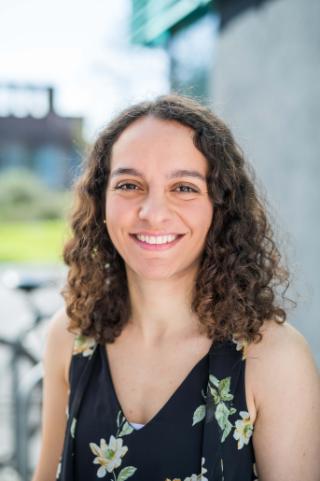
Project: Long-term impacts and multiple benefits of green infrastructure in cities.
Supervisory team: Professor Guangtao Fu/Professor David Butler (UoE), Professor Zhgua Yuan/Professor Keshab Sharma (UQ)
Mayra studied for her undergraduate degree in Uruguay and then completed a Masters in Water Engineering and Management at the University of Exeter. She is currently researching for an Engineering PhD.
Why did you choose to do a PhD?
While I was at University in Uruguay I was working in research and really enjoyed it. Then I moved to industry for 2 years but realised I wouldn’t go far if i didn’t continue with my studies. Moving into academic research has definitely helped to accelerate my career.
I chose my Masters programme because of the great reputation of the Centre for Water Systems and really enjoyed it. I didn’t visit the campus before I arrived for my Masters, but I’m so happy with my decision. I love Exeter – the campus is amazing, very green and the city is small but with so many activities and I really like the fact we are really close to the beach. If you go walking you’re outside of the city in around 5 minutes. There are so many beautiful landscapes, it’s a great area to explore.
Before I started my masters, my main objective was to apply for a PhD. When I was writing up my dissertation my supervisor mentioned this project and I jumped at the opportunity. I can’t believe I’m here, actually!
My dream is to work in an international organisation like the UN or FAO – being part of QUEX is a super international experience which I hope will help me in my long term career.
What is your favourite thing about your PhD?
I like the fact at Exeter you get this work life balance – which is amazing because you can actually do things at the same time as studying. I really enjoy all the activities in Exeter and being part of the cohort means you can try these things out together – we go climbing, bouldering and lots of different activities together. One of the best things about QUEX is that you have a cohort around you and above you, who are there socially but also to provide guidance and support throughout your PhD.
Can you describe your research community?
At Exeter there is an environment that promotes communicating among other researchers which is really great. I really like being based in the Centre for Water Systems; my supervisors are highly referenced in their field and I feel very privileged to work alongside them. The Centre spans the Streatham campus. My office is made up of PhD students and post docs which is very motivating – it reminds you that there is this future ahead in your academic career that will be amazing. Every month there is a lunch where new members of the centre are invited to do a presentation, which is great opportunity to network and learn about different research going on in the centre from the very start.
Are you excited about spending time at UQ?
I’m really looking forward to spending time in Queensland – not only the travelling (which is awesome) – but amazing to know that you are part of another research group that are waiting for you on the other side of the world. My research team in UQ provide a very different perspective to the research we are doing on the Exeter side - UQ concentrate on water quality, Exeter focus more on hydraulics and hydrology. Having supervisors across the institutions gives me insight into very different processes and research. It’s going to be really exciting to meet the team in Queensland!
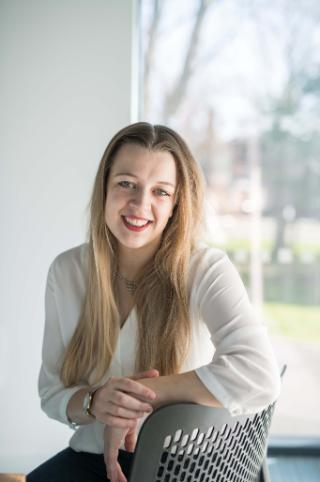
Project: Harnessing the potential of community groups to prevent loneliness in older people
Supervisory team: Dr Mark Tarrant (UoE), Professor Catherine Haslam (UQ), and Dr Raff Calitri (UoE)
Laura completed an undergraduate degree at the University of Exeter and is currently researching for a Medical Studies PhD.
Why did you choose to do a a PhD?
I applied for a PhD because I really love research – a PhD was the natural next step in my career. When I applied, I was really looking forward to the independence and ability to guide my own research a PhD allows. I completed my undergraduate degree at Exeter and loved it. Growing up in a very small rural community, I found Exeter had the best of both worlds – the city and countryside. The campuses are so green and peaceful, but there’s so much going on in the city. The proximity to Dartmoor and beaches is also a plus! I also really loved being in Exeter University; the research community I was part of during my undergraduate was so supportive. Having a supportive community and supportive environment is the best thing you can give yourself for a successful PhD.
What do you enjoy about your PhD?
The things I love most about my PhD are the sense of community and freedom– I enjoy being part of the department and getting involved, as well as the freedom I have to draw up my own timetable and control how I work. I love living and working in Exeter, having support from both my department and the QUEX cohort. I feel so supported here and excited by the wider opportunities QUEX provides. It’s been great getting to know the other QUEX students, its not often that you get to work with students outside your department, it’s really refreshing.
I already knew my Exeter supervisors would be great, having worked in the same department as them during my undergraduate degree. I’ve also really enjoyed meeting and working with my UQ supervisor, she has bought some new and interesting perspectives to my work and thinking. In terms of the project, it’s a really exciting time to be researching loneliness - the issue is starting to get a lot of public recognition, and there are some great interdisciplinary research communities growing. Hopefully this momentum will allow my work to have real impact!
What do you do outside your PhD?
Outside my research, I’m doing part time work in a clinical trial for older people, which helps me keep up my communication skills. Engaging with the public and different stakeholders related to my PhD really keeps my passion for the PhD going; it’s a constant reminder of the reason I’m working on loneliness in older people. Seeing who my research is benefitting keeps me motivated and provides real perspective.
Are you excited about spending time at UQ?
I’m very excited about going to UQ – I’ve never been outside of Europe before. This will be my first big trip across the world! I’m really excited to see where I’ll be living, getting involved and meeting a new community, as well as experiencing different academic culture. I’m so used to UK systems it will be really interesting to see what I can learn from my UQ network.
Where do you hope your PhD will take you?
I want a career in academia. I think that being part of the QUEX institute gives you so many connections and wider skills, it puts you in a great position to kick your career straight off the bat. I hope to apply for postdoctoral fellowships; the experience you get from QUEX -travelling, meeting new people, international collaboration- sets you up so well. The main thing I want to get out of the PhD is to create something that is impactful and has some longevity beyond the 3 year project.
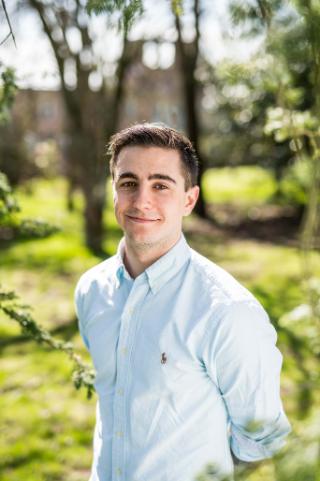
Project: Using caffeine and nitrate supplementation to augment adaptation to high intensity exercise training
Supervisory team: Professor Andrew Jones (UoE), Dr Michael Leveritt (UQ)
Stefan studied for his undergraduate and Masters degrees at the University of Exeter, and is now researching for a PhD in Sport and Health Sciences.
Why did you choose to do a PhD?
After my Masters, I wanted to carry on my education and progression so the logical step was to take a PhD. I love the research environment at Exeter; there are excellent research groups within Sport and Health Sciences. Applying for this PhD provided the best opportunity to carry out research in my area of interest, in a world leading department.
Can you tell us about your research project?
My PhD project looks at nitrate, which is found in things like leafy green veg and beetroot juice. Lots of previous studies show that these foods can they can improve performance and health. My project is going to start off by looking at how nitrate is taken up in the body and then that will progress into practical applications later on. That’s where the link with UQ comes in; we’re doing the mechanistic stuff here at Exeter, then going over to Queensland University to do the practical applications. The areas expertise on each side of the partnership (Exeter and Queensland) really complement each other, and the input from both sides means I’ll get different experiences and insight from teams at both Universities.
What is it like working with PhD supervisors?
My supervisory team are amazing, and the fit between Exeter and Queensland seems really natural. Before my PhD began, I was a research assistant in the University Research Group which I’m now based in. It’s great that the team know me well and how I work, and I know how they all work best. I see a member of my Exeter-based supervisory team daily, and get help for anything I need. During planning for the first stage of my study, we linked up with the UQ side and I’m looking forward to more skype meetings to update the team when the first study is properly underway.
The thing I love the most about my PhD is getting into the lab and doing the research. It’s really fun to see a project through – coming up with the rationale for why something might happen then seeing it occur is really cool.
What do you do outside your PhD?
I’m looking forward to attending conferences relating to my research. I’ll hopefully be presenting my first or second study at next year’s ACSM next year in San Francisco.
Are you looking forward to spending time at UQ?
I’m really looking forward to going to UQ. It’s been quite a long build-up preparing my research to travel over to Queensland, but when I arrive in July things will finally be reality! I’m looking forward to meeting my UQ supervisor and linking up with a UQ based researcher who came to work in our Exeter labs over the summer, to see how their work is developing.
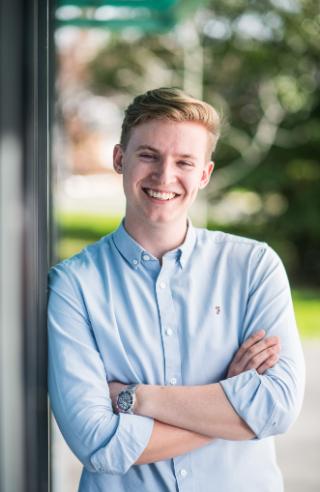
Project: Exploring the nanoscale surface interactions of microplastics in natural waters
Supervisory team: Professor Tamara Galloway and Professor Kevin Thomas
Steve studied for his undergraduate degree in Marine Biology at Bangor University, and is now researching for a PhD in Biosciences.
Why did you choose to do a PhD?
Applying for my PhD came from my interest in the marine environment. Originally, I’m a marine biologist – I studied for my undergraduate in Marine Biology and then decided to apply what I’d learnt in my first degree to a business-orientated subject, I studied for an MSc in Sustainable Aquaculture at the University of Stirling. Ultimately this all links to my interest in marine conservation and my desire to contribute to marine conservation through research and outreach.
Can you tell us about your research project?
I am interested in microplastics - specifically how different biological and chemical factors interact with microplastics and how this ultimately affects their impact, behaviour and fate in aquatic ecosystems like the ocean.
My PhD supervisors are brilliant; supportive but in no way over-bearing. Obviously the time difference is challenging but they are so supportive in different ways – both bring very different ideas to the research while being very open to my influence on the project. My supervisory team encourage me to lead and steer the project, which means I have a lot of control over my research.
Why did you choose Exeter?
Exeter’s location is brilliant – being interested in marine biology there’s so much coast close to here which is great for what I’m doing. One of the reasons I applied for the PhD at Exeter was Tamara and her work; I’d read about her research and how it had engaged communities and stakeholders outside science. Getting involved in this outreach and engagement has been brilliant – through my supervisor I’ve been able to attend high profile events related to my research, including events at Parliament and the Eden Project. Recently, I attended a report launch event at the Houses of Parliament on plastic waste management. The report looked at the fact that in the majority of Britain’s plastic waste for recycling has historically been exported to other countries such as China. The report establishes a target of net zero exports of plastic packaging waste by 2030. The report outlined the plan ahead and the event provided a great opportunity to network with different stakeholders at the forefront of plastics research.
As well as this, I recently attended the launch of the Exemplar hub at the Eden project. The Exemplar hub is a project working on building a network of people who bring different perspectives on plastic, aiming to create a management plan for the future of managing plastics in the South West. This includes solutions to waste as well as plastic use. It was a brilliant experience and great to meet people from different industries engaged with this work.
What is the most enjoyable part of your PhD?
The thing I enjoy the most about my PhD is outreach and my research’s impact. Equally, I love the communities I’m a part of. I’m part of the QUEX cohort, who are all great and we do a lot of social activities outside our typical PhD research. I’m also part of different groups within my discipline - the plastics research group and wider Biosciences group within Geoffrey Pope. Each of these research communities in the University bring their own ideas to my work – a lot of insight from the plastics/biosciences group has directly informed where I’m taking my research.
Are you excited about spending time at UQ?
I’m really looking forward to spending time at The University of Queensland, getting a feel for the campus and what there is for my research. I can’t wait to meet my UQ supervisor, and my counterpart from QUEX Cohort 1 who I share a supervisory team with. It’ll be really interesting to hear about how things work on the Queensland side of my PhD and spend an extended period of time living and working in Australia. I’m really enjoying my PhD and being part of the QUEX Institute!
